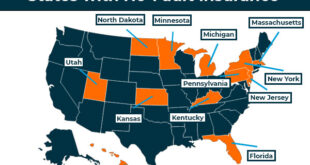Low Fixed Rate: Affordable and Predictable Loans In today’s financial world, the term low fixed rate has gained significant importance for individuals seeking predictable and affordable loan options. Whether you’re considering a mortgage, personal loan, or auto financing, understanding low fixed rates can save you money and bring financial stability. This comprehensive guide will walk you through the benefits, considerations, and strategies for securing loans with low fixed rates.
What Is a Low Fixed Rate?
A low fixed rate refers to an interest rate on a loan or financial product that remains unchanged throughout the agreed term. Unlike variable rates, fixed rates provide predictability, making budgeting easier and protecting borrowers from market volatility.
Advantages of Low Fixed Rates
- Predictable Payments
A fixed interest rate ensures your monthly payments remain the same, providing financial clarity. - Protection Against Rate Increases
Borrowers are safeguarded from market fluctuations and rising interest rates. - Budget-Friendly
Fixed payments help you plan your monthly expenses without unexpected increases. - Better Financial Management
With consistent payments, tracking your finances becomes more straightforward.
How to Qualify for Low Fixed Rates
- Maintain a Good Credit Score
Lenders prioritize borrowers with high credit scores when offering the lowest fixed rates. - Compare Lenders
Shop around to find lenders that provide competitive rates and favorable terms. - Opt for Shorter Loan Terms
Loans with shorter durations often come with lower fixed rates. - Consider a Larger Down Payment
For mortgages or car loans, a larger down payment can reduce the interest rate. - Leverage Pre-Approval Offers
Getting pre-approved helps you secure a low rate before committing to a loan.
Low Fixed Rate Loans vs. Variable Rate Loans
| Aspect | Low Fixed Rate Loans | Variable Rate Loans |
|---|---|---|
| Interest Rate Stability | Constant throughout the loan term | Fluctuates with market changes |
| Payment Predictability | Fixed monthly payments | Payments can increase or decrease |
| Risk | Lower risk due to consistent rates | Higher risk due to unpredictable rates |
| Flexibility | Less flexible if rates drop | More flexible in declining rate markets |
Tips for Securing a Low Fixed Rate
- Improve your credit score before applying.
- Consider refinancing your current loan if rates have decreased.
- Look for promotions and discounts from lenders.
- Opt for automated payments to qualify for additional rate reductions.
- Compare interest rates online using reputable calculators.
- Choose a loan term that aligns with your financial goals.
- Negotiate with lenders for the best possible rates.
- Maintain a low debt-to-income ratio.
- Stay updated on market trends and rates.
- Seek professional financial advice to explore your options.
Frequently Asked Questions (FAQs)
- What is considered a low fixed rate?
A rate lower than the market average, typically 2%-5% for mortgages or personal loans. - Are low fixed rates available for all loan types?
Yes, they are common for mortgages, personal loans, and auto financing. - How does my credit score affect my fixed rate?
A higher credit score often qualifies you for the lowest rates. - Can I switch from a variable rate to a fix rate?
Yes, refinancing allows you to switch to a fixed-rate loan. - What factors influence fix rates?
Credit score, loan term, down payment, and current market conditions. - Are there fees for securing a fixed rate?
Some lenders charge fees for locking in a fixed rate, so always inquire beforehand. - Is a fixed rate always better than a variable rate?
It depends on market conditions and personal financial preferences. - Can I negotiate a lower fix rate?
Yes, strong credit and financial stability can help in negotiations. - Do fixed rates vary by lender?
Yes, it’s essential to compare rates and terms across lenders. - What happens if I pay off my fix-rate loan early?
Some lenders may charge a prepayment penalty, so check your loan terms.
Conclusion
Choosing a loan with a low fixed rate is a smart financial decision for anyone looking for predictability and stability in their monthly payments. Fix rates shield borrowers from market fluctuations, making it easier to budget and plan long-term expenses. By understanding the factors influencing fixed rates and taking steps to qualify for the lowest rates available, you can secure a loan that aligns with your financial goals.
Always compare options, read the fine print, and consult with financial experts to make the most informed decision. A low fix rate loan isn’t just a choice; it’s a pathway to financial security and peace of mind.
 Gerbang Finance
Gerbang Finance

